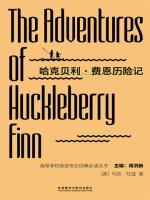Thoughts
用户830003
The Mississippi River in Mark Twain's works, flowing with freedom and
rebellion, is like a mirror reflecting humanity and history. Huck's raft
cuts through the dark current of moral prejudice, and Jim's shackles
shatter the chains of racial discrimination. This journey is not only a
boy's escape but also a soul's awakening. When Huck struggles between
conscience and dogma, the words "Go to hell, I'd rather be friends
with a black man" ring out like thunder, tearing apart the veil of
hypocrisy: true morality lies not in obeying authority but in listening
to the voice within. What makes this novel most compelling is its
expansion of the definition of freedom from escaping slavery to breaking
free from mental shackles. Huck's casual act of throwing away a
cigarette is actually a silent rebellion against the adult world; while
Jim's protective figure in the storm, with his silent fatherly love,
restores the dignity that has been trampled upon. Their adventure lacks
the clamor of heroism, but in every storm and every act of kind
deception, they silently pay tribute to the inherent goodness of
humanity. Re-reading this classic today, Huck's river still surges
beneath our feet. When algorithms carve out information silos for each
individual and groupthink builds new moral fences, are we not drifting
on the Mississippi of modern civilization? Huck's choice reminds us that
true freedom never comes from external liberation but from the
persistent questioning of equality and justice deep within the soul.
Just like that raft with no return path, it is always seeking new
directions in the vortex of breaking down prejudice.



 京公网安备 11010802032529号
京公网安备 11010802032529号